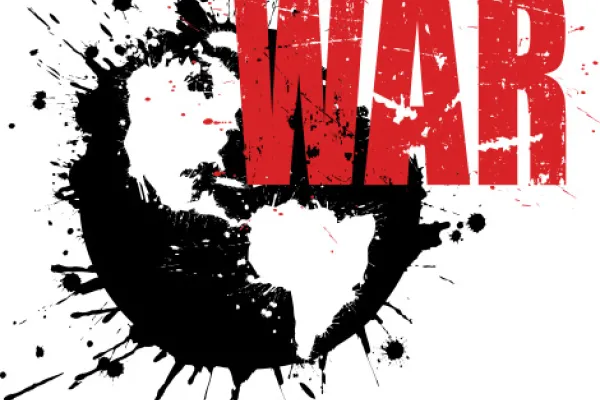War (2017-18)

Published April 24, 2020
Project Description
Despite efforts to outlaw it and undermine its legitimacy, war remains with us; it is a persistent human institution. War has both shaped and destroyed peoples, nations and states; devastated and also inspired great works of art and architecture; deeply altered demographics, economies, landscapes and ecosystems; given birth to social movements and migration flows; and given shape to legal and moral ecologies even as its conduct has violated laws and ethical codes. War has been intimately bound up with the development of science and engineering, with poetry and fiction, with drama and film, and with how human communities distinguish themselves from others. In various times and places, war has been, and continues to be, considered a legitimate and even virtuous endeavor. Heroes, leaders, and saviors emerge out of war—as do criminals and victims. War and statecraft can develop in tandem, generating a complex web of political, economic, religious, and cultural forms, practices, discourses and iconographies both historically and in the present.
This year-long Kahn project will bring together scholars from across the disciplines whose work touches on war in all of its complex facets and dimensions. How has war shaped our institutions, cultures, ways of speaking, ways of building, ways of feeling and thinking? What has war made of us, and what have we made of war? Which technologies would not have existed without it, and what are the repercussions of the technologies it has spawned? What aesthetic movements have grown from participation in or resistance to war? How has war engaged or occluded questions or race or ethnicity, gender or sexuality? How has war influenced ways we organize ourselves into larger groups, from sports teams and marching bands to states and alliances? The ways we speak about everything from medicine (where war may be a metaphor for how we “fight” disease) to economic initiatives (the war on poverty)? In what senses is war exceptional, and in what senses is it mundane, even banal? Which human cognitive and emotional characteristics help us to understand and explain the practice of war?
We think we know what war is, but do we? The experience of two World Wars in the 20th century, capped by the deployment of atomic bombs, has presumably challenged the attachment of positive connotations to warfare, but in some contexts war retains its claims of legitimacy in a struggle against domination. War adapts, it changes--as do the ways in which it is understood or figured in literature and art. The language of war retains its power as a metaphor for many kinds of conflict: the war on crime, the war on cancer, the war on drugs, the war on terror, class war, war between “the sexes.” Are human beings constituted or conditioned to think, talk, and behave in such a way as to make war seem inevitable? Do failed--or indeed successful--peace plans have anything to teach us about human societies or human nature? This Kahn project seeks to provide a forum for the multidisciplinary study of war: its waging, its representations, its implications, its aftermath (which can include peace)--the myriad causes and consequences of war in its complex and varied forms.
Project Fellows
- Joshua Birk, History
- Ellen Boucher, History
- Darcy Buerkle, History
- Mlada Bukovansky, Government, Organizing Fellow
- Temar France '18, Afriacana Studies
- Courtney Grant '19, Theatre
- Lily Gurton-Wachter, English
- Michelle Hu '18, English
- Karen Koehler, Architectural and Art History, Hampshire College
- David Mednicoff, Public Policy and Middle Eastern Studies, University of Massachusetts, Amherst
- Erica Morawski, Art History
- Yi Ning '18, Government
- Cornelia Pearsall, English Language and Literature, Organizing Fellow
- Karen Remmler, German Studies, Gender Studies and Critical Social Thought, Mount Holyoke College
- Suleiman Mourad, Religion
- Rebecca Tibbitts '19, History
- Sujane Wu, East Asian Languages and Literatures
- Enhua Zhang, Languages, Literatures and Cultures, University of Massachusetts, Amherst